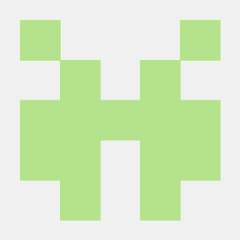rouplex-platform -- a platform for distributed computing
README
A platform for discovery and communication between various parts of a distributed service or application.
At its minimum, the platform is a library which can be used to serialize and deserialize application constructs into payloads which it can then send to and receive from remote endpoints. For now it supports TCP and HTTP communication protocols with WebSockets coming soon. It supports raw byte streams via TCP, as well as application/json via JAX-RS as serialization protocols. It offers plain or SSL/TLS communication for security of your data in transit. For now it is only available in Java, with bindings for other languages coming soon. The communication pattern is request-reply, with fail fast semantics, and with service consumers (clients) knowing beforehand the coordinates of the service providers (servers). Blocking API is available with all communication protocols and unblocking/asynchronous flavors are available with TCP communication protocol.
The platform can also be used as a service, in which case a Discovery Service facilitates registration of the service providers (servers) and service consumers (clients). In this case, the callers don't need to resolve or even balance their calls towards various endpoints, since the Platform handles this tasks. In this case, the pub/sub communication pattern will also be available (coming soon) with at-most-once delivery guarantees.
We intend to provide a Security Service for managing the keys/and certificates of various services as well as Metrics and Logging services (coming soon).
The platform is extensible in every layer, so you can decide to bring your own implementations, and maybe share them with the community as part of this open source project.
The JAX-RS implementation comes with Swagger support, providing a nice UI for your RESTful services, right out of the box.
What is this repository for?
This repo provides various libraries which can be used by your application or service to facilitate communication between your distributed components. You will only need a subset of them depending on your use case. Here a quick list of the modules:
-
rouplex-commons contains basic functionality, some of which is already available in the later JDK versions. They are 100% compatible with the ones of the recent JDKs. Most likely, you will not need to import it directly.
-
rouplex-platform contains the basic functionality, and mostly defines the types needed for binding of the different modules. Most likely, you will not need to import it directly.
-
rouplex-platform-tcp contains the tcp server and client implementations which you can use if your application needs low latency and high throughput. There is no payload transformation or wrapping, just communication, plain or secure.
-
rouplex-platform-jaxrs contains JAX-RS constructs which you can use if your service defines and implements its functionality using JAX-RS annotations.
-
rouplex-platform-jersey provides a RouplexJerseyApplication class which you can inherit to implement your own application. You can further use Swagger to decorate your functionality, and when compiled, a set of UI resources will be created and deployed alongside your app in the WAR file for a very nice visual experience, right out of the box.
-
rouplex-platform-jaxrs-client (coming soon) will contain functionality for binding an auto generated JAX-RC client.
Versioning
We use semantic versioning, in its representation x.y.z, x stands for API update, y for dependencies update, and z for build number. Further, the main distribution is built using the latest Jdk (Jdk-1.8 as of May 2017) and then there are builds for Jdk-1.6, Jdk-1.7, Jdk-1.8 (and so on as we go with new Jdks) addressable through the classifier coordinate of the pom.
Build
-
Maven is required to build the project. Please download and install it. Make sure the installation is successful by typing
mvn -versionin a shell window; the command output should be showing the installation folder. -
This is a multi jdk project providing optional builds for Jdk1.6+. You need to download the desired Jdks and make sure they are properly installed by typing
java -version; the command output should show the version (1.6, 1.7, 1.8 or 1.9). -
We use maven toolchain to provide the installation folders for the used jdks. Edit or create the ~/.m2/toolchain.xml file to contain the following (replace the jdk installation folders with your own):
<toolchains> <toolchain> <type>jdk</type> <provides> <version>1.6</version> <vendor>sun</vendor> </provides> <configuration> <jdkHome>/Library/Java/JavaVirtualMachines/1.6.0_65-b14-462.jdk/Contents/Home</jdkHome> </configuration> </toolchain> ... <toolchain> <type>jdk</type> <provides> <version>1.8</version> <vendor>sun</vendor> </provides> <configuration> <jdkHome>/Library/Java/JavaVirtualMachines/jdk1.8.0_121.jdk/Contents/Home</jdkHome> </configuration> </toolchain> ... </toolchains> -
On a shell window, and from the folder containing this README file, type
mvn clean installand if successful, the built artifacts will be in the target folders inside each module. If you are interested in building for only one of the JDKs, invoke the appropriate profile e.g. typemvn clean install -Pjdk7
Test
mvn test
Run
As we mentioned, this is a library and can be linked and be used by other libraries or applications. Hence this is not runnable on its own.
Contribution guidelines
- Writing tests
- Code review
- Other guidelines
Who do I talk to?
- Sole owner andimullaraj@gmail.com
